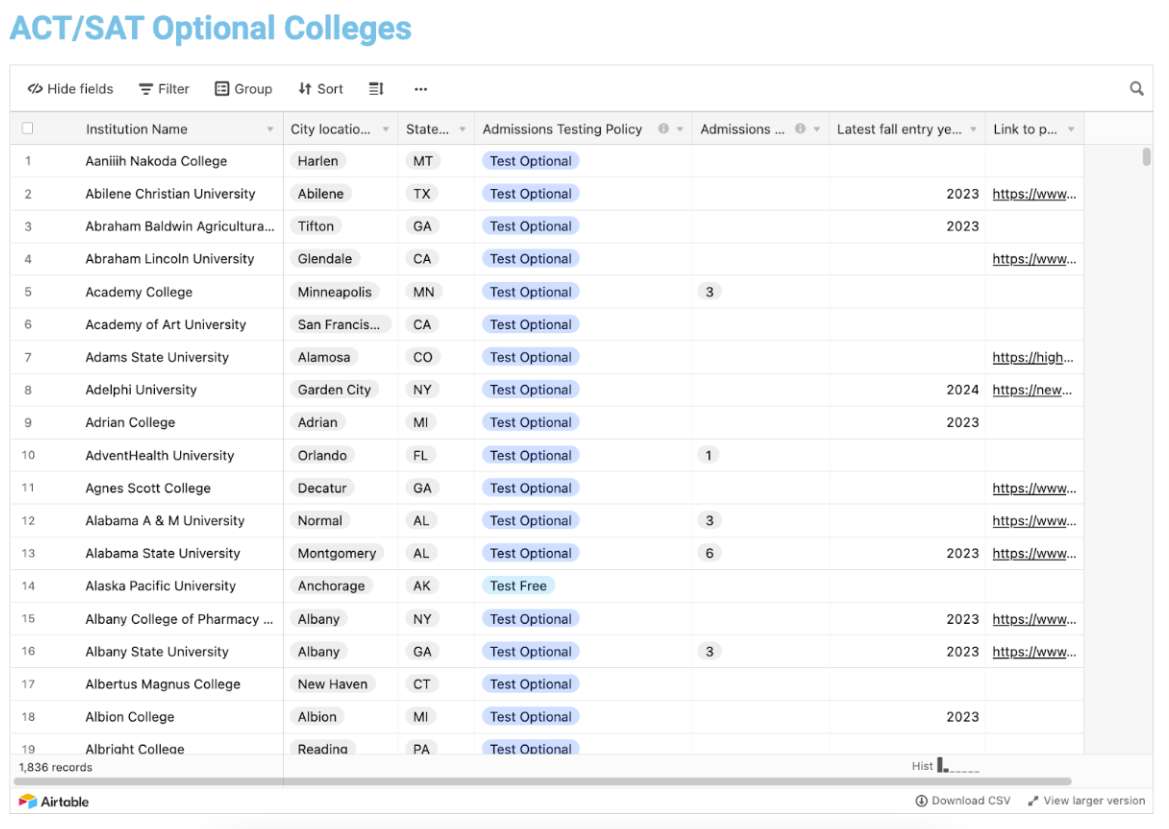Are the SAT and ACTs important anymore?
DO THE SAT AND ACT(ually) MATTER? While test scores are no longer considered in many college applications, they still prove to be useful for students.
November 21, 2022
SAT and ACT—the three letter acronyms that are often considered the bane of your existence if you are a high school student in America. But during the start of the pandemic, colleges loosened their application requirement of submitting test scores, and many schools are planning on keeping these changes indefinitely.
For example, the Cal State University, University of California and Ivy League colleges no longer require applicants to submit their test scores. This raises the question: Do standardized tests even matter anymore?
The long answer is yes. While the pandemic has shed more light onto the inequalities that have already existed from standardized testing, students should still put their best effort into the scores which may be beneficial beyond college applications.
There are three general terms used to categorize a college based on whether or not they consider a student’s test scores, but keep in mind that what test-optional may look like at one college will look different at another:
Test-optional: Not required to submit an SAT or ACT test score, but colleges will take scores into consideration if included in application.
Test-blind, test-free or score free: SAT or ACT scores are not considered at all in the application process.
Test-flexible: Required to submit standardized test scores, but scores from Advanced Placement, International Baccalaureate or SAT Subject Tests are accepted in lieu of the SAT or ACT.
Many schools became test-optional during 2020, but it’s also important to understand that while the pandemic was a leading factor, so were the discussions from before 2020 about the unfairness of standardized tests. Both of these pandemic effects exacerbating pre-COVID educational inequalities can be seen through the drop in ACT scores for the class of 2022. The average ACT composite scores for the class of 2022 was 19.8 out of 36, which marked the lowest score in over 30 years. Additionally, 42% of the class of 2022’s ACT-tested graduates did not meet any subject benchmarks, which indicate a student’s success in English, reading, science and math.
Educational leaders attribute these marks to an educational decline caused by the pandemic.
“The results offer a lens into systemic inequities in education, in place well before the pandemic shuttered schools and colleges temporarily waived testing requirements,” senior director of the ACT’s state partnerships Rose Babington said to The Associated Press. “For example, students without access to rigorous high school curriculum suffered more setbacks during pandemic disruptions,” Babington said, especially “students from rural areas, from low-income families and are often students of color.”
In light of these issues, it comes as a relief that changes to a college’s exam requirement for admission have brought upon positive results. In fall of 2021, the first season after the UC system became test-blind and removed their exam requirement, they received 28,000 more applications and reached a record-high 43% students coming from underrepresented racial and ethnic groups and a 10% increase in low-income students admitted.
This change could result from college admissions office staff gaining new training to evaluate an applicant instead of using test scores.
“The ‘comprehensive review’ process [now] looks at grades, extra-curriculars, the socio-economic factors in which students grow up and other non-test criteria [which] becomes even more important, ” UC Board of Regents Chair Cecilia Estolano said to CalMatters.
Not only have the CSU and UC campuses become test-blind, but schools like Harvard, Yale and Stanford University have become test-optional. However, many colleges may still require test scores beyond their admission requirements so students must research thoroughly.
One resource is Fairtest’s list of 1,835 ACT/SAT test blind or test-optional American colleges also indicates that school’s admission testing policy restrictions, if any. For example, a number listed across the college’s row means the college requires test scores for one of the following:
1: for academic placement or advising
2: required only if a student is applying from out-of-state
3: may be required but only considered if minimum GPA or class rank are not met
4: required for certain programs
6: SAT/ACT scores are required and if not submitted, the score from an alternate placement test or school-specific admission exam score needs to be included (test-flexible)

Therefore, what test-optional looks like at one school will look different from the test-optional policies at another school, so students must check each college’s website to know the role of test scores in the admissions process.
Additionally, test scores can prove to be useful beyond admission. For example, the University of California Admissions are listed as test-free because scores are not considered for admission decisions or scholarship eligibility. However, scores can help students become eligible to apply if other requirements (eg. GPA or class rank) are not met, and once enrolled in a UC school, test scores can be submitted to assist in course placement. For example, if the minimum scores on certain sections of the SAT or ACT are met, it can be used to satisfy course requirements for foreign language or English at certain schools within Vanderbilt University.
High scores on specific sections of the SAT or ACT can also allow students to enroll in advanced classes and become eligible for pre-determined scholarships or admission to competitive honors programs. Even as a college student, the SAT and ACT scores that a student thought they once escaped may actually benefit them.
Ultimately, test scores are not just useful but still important for college admissions and as a college student. Students should put their best effort forward when taking the SAT or ACT, and this doesn’t necessarily have to require thousands of dollars worth of test prep courses. Take the test you feel most confident you can succeed in.
When applying to colleges, thoroughly research where your test scores may be needed in the application process or when enrolled as a student. Even if a student will not be applying this application season, it’s important to stay updated on any changes that may happen in the future. Those test scores are probably still going to be needed, even after you’ve graduated high school.


























































